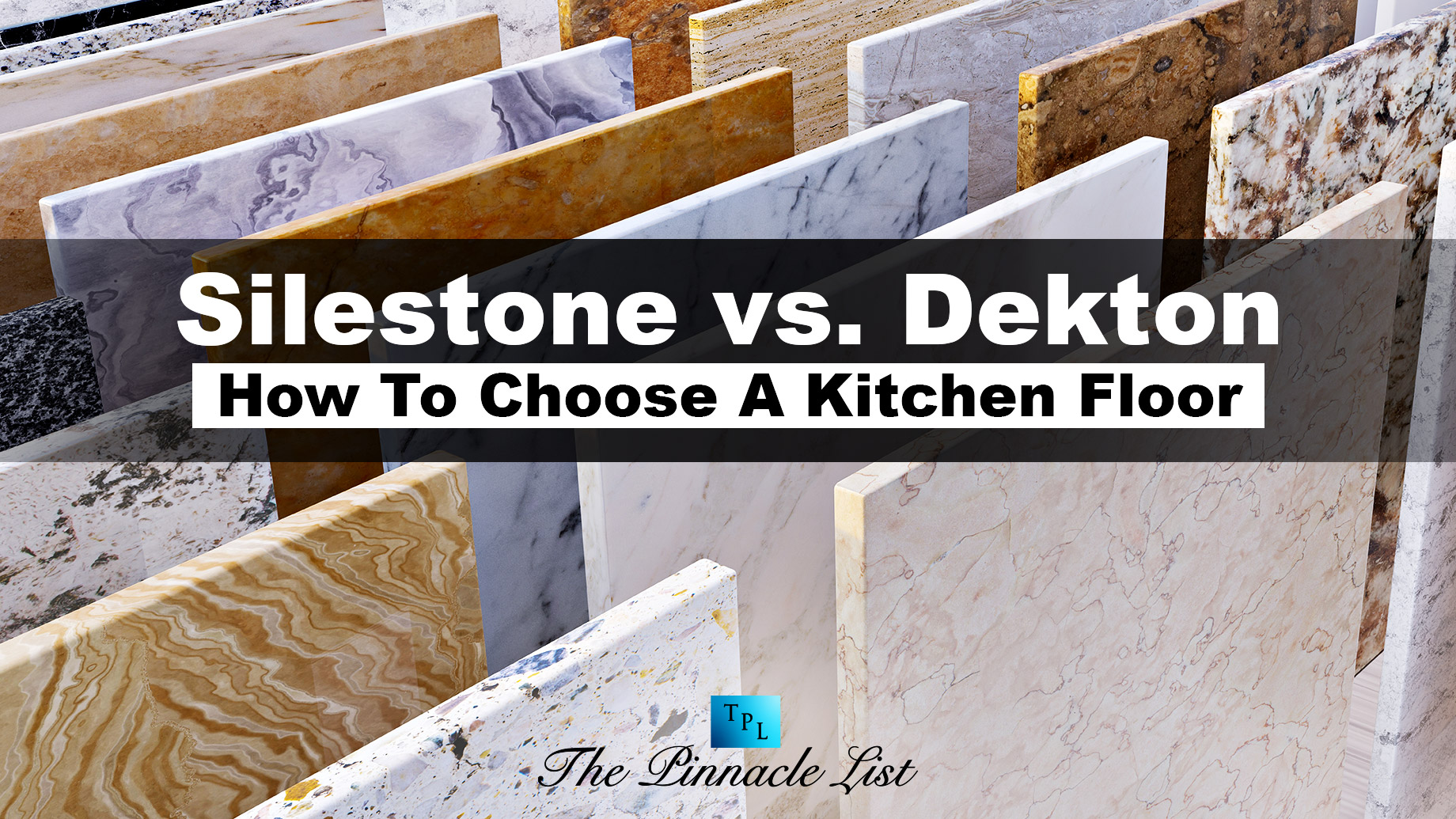
When it comes to designing a kitchen, flooring isn’t necessarily the first concern that comes to mind. However, it is an essential element that can make or break the overall look and feel of the space. Not only does the kitchen floor need to be functional and hassle-free, but it should complement the overall style of the kitchen.
With so many options available, it can be overwhelming to choose the right kitchen flooring. Two highly popular choices are Silestone and Dekton. They have different characteristics and benefits. In this article, we will discuss Silestone vs Dekton and how to choose the right kitchen floor for your home.
What is Silestone?
Silestone is a hybrid surface made up of premium minerals and recycled materials. It’s usually available in a broad range of colours, making it a versatile choice for any kitchen design. Silestone is known for its durability and resistance to scratches, stains, and heat. It is also non-porous, which means it won’t harbour bacteria or germs, making it a hygienic choice for kitchen countertops and floors.
What is Dekton?
Dekton is an ultra-compact stone that is made of more than 20 minerals extracted from nature. Dekton is known for its extreme durability and resistance to heat, scratches, and stains. It is also UV resistant, which is why it’s often used for outdoor kitchens or areas with lots of natural light.
Durability
Durability is perhaps the most important factor in choosing the right kitchen floor. Both Silestone and Dekton are known for their strength and resistance to scratches and stains. However, Dekton is considered more durable than Silestone due to its unique manufacturing process.
Design
The second factor to consider is the design, but this is a subjective one to some extent. Silestone and Dekton both offer a variety of colours, but they have different textures and patterns. Silestone has a more uniform look and it’s often found in solid colours. Dekton, on the other hand, has a more natural idiosyncratic look and is available in patterns that mimic natural stone, wood, and concrete. Ultimately, this one’s down to the individual.
Price
For any renovation, price is an important piece of the puzzle. Customers don’t want the cheapest, but the best value for money. Silestone is generally more affordable than Dekton, however, it depends on the specific product and installation requirements. Dekton can often be more pricey due to its unique manufacturing process and extreme durability.
Maintenance
Finally, it’s important to consider the maintenance requirements of each flooring option. For the most part, Silestone and Dekton are comparable in this regard. The great compactness of Silestone surfaces, and their hybrid composition of premium minerals and recycled materials, create an enormous resistance to any type of stain.
Silestone is easy to clean and maintain, requiring only a mild soap and water solution. It is also naturally resistant to bacteria and germs. Dekton is just as easy as Silestone. You will only have to let the soap and water act for a couple of minutes and wipe with a cloth to remove any soap residue. Then dry it with conventional kitchen paper.
Summary
In conclusion, choosing the right kitchen floor is essential for creating a functional and beautiful space. The kitchen is the heart of the home and where we spend an often underestimated amount of time. Silestone and Dekton are both excellent choices for kitchen, offering slightly different benefits. When choosing between the two, consider factors such as durability, design, price, and maintenance requirements.